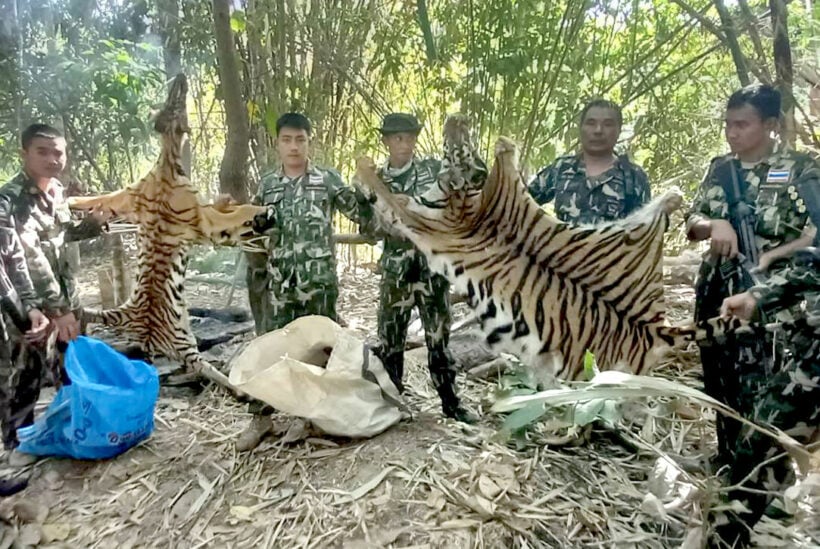Alibi for 2 tigers killed results in an additional charge for suspects

In the continuing saga of the 5 men accused of having killed 2 Bengal tigers, skinning them, and cooking their meat, the alibi they used to justify the poaching may end up backfiring on them as they are slapped with an additional charge. They were already charged with 10 different offences relating to the poaching including violating the Forest Reserve Law, the National Park Act, and the Wildlife Conservation and Protection Act.
The men claim that they are not hunters, but merely ranchers raising cattle and had killed the tigers after the big cats had killed around 20 cows from their farm and neighbouring farms. The Deputy Director-General of the Department of National Parks, Wildlife and Plant Conservation didn’t believe their story, saying a rancher wouldn’t hunt the tigers so skillfully with precise headshots that did as little damage as possible to the skins which were then meticulously and professionally removed with great skill, again doing as little damage as possible to the pelt.
But, their claim of just being cattle farmers who killed the tigers to save their cows has now landed them in additional hot water. Section 21 of the National Park Act forbids raising livestock or cattle in a national park. The camp where the tigers were killed was located in Thong Pha Phum National Park in Kanchanaburi. The suspects said that they use the carcass of one of the cows that the tigers had killed as bait, meaning the hunting, and the cattle raising, took place inside a national park.
The alibi that they gave would technically be an admission of another crime, similar to a criminal saying ” I didn’t murder that man, I was busy robbing the bank at the time.”
The campsite where the 5 men are accused of shooting and cooking the 2 tigers was uncovered on January 9, but barking dogs at the camp alerted the suspects who fled into the forest. 4 of the 5 men turned themselves in the next day, and the fifth one was apprehended a short time later. The tiger pelts were perfectly preserved in a way that would allow them to be sold for up to 1 million baht.
SOURCE: Bangkok Post
Latest Thailand News
Follow The Thaiger on Google News:


























